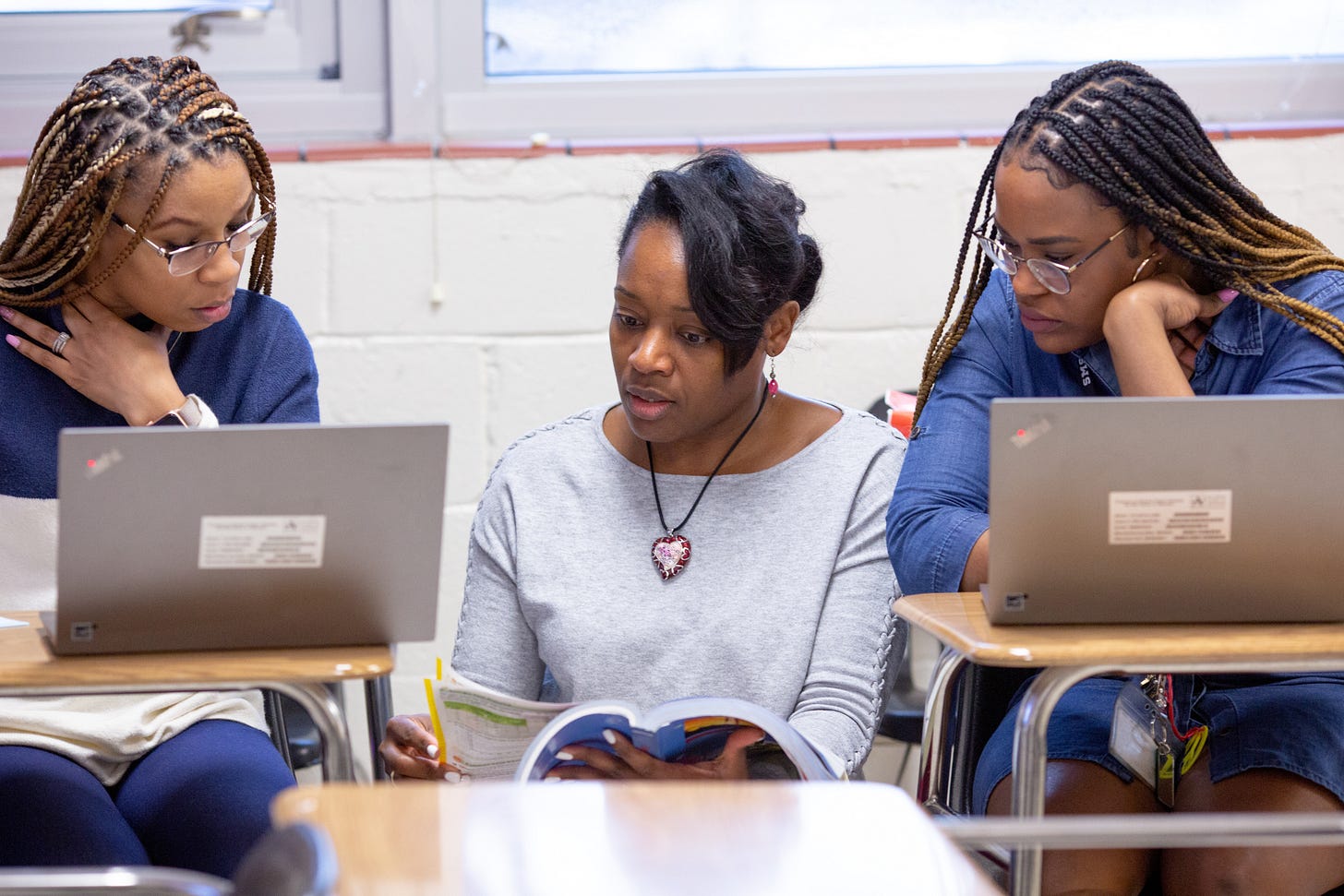THE WEEKS AHEAD
Monday, May 23rd (12:30 PM EST) The US Department of Education is hosting a half-day virtual summit to bring together education leaders, disability advocates and coordinators, special education professionals, and others to discuss issues affecting students with disabilities and students with mental health needs. Register here.
Tuesday, May 24th (10:15 AM EST) The Senate Appropriation Subcommittee on Labor, Health and Human Services, Education, and Related Agencies is holding a hearing on the FY23 budget for the Department of Education. Watch here.
Wednesday, June 8th (1:00 PM MST), ECS and SAS will host a webinar with Senator Ballard (NC) and Commissioner Vandeven (MO) about their state plan to address unfinished learning. Register here.
FEDERAL EDUCATION POLICY
H.R. 7780 | The House Education & Labor Committee passed the Mental Health Matters Act to provide grant funds to increase the number of mental health professionals in high-poverty schools.
H.R. 604 | The House Education & Labor Committee passed the Reopen and Rebuild America’s Schools Act to establish a $100 billion grant program and $30 billion bond program for modernizing the physical and digital infrastructure of high-needs schools.
H.R.7309 | The House reauthorized the Workforce and Innovation Opportunity Act — our country’s primary workforce development legislation.
USED | The US Department of Education publishes ESEA addendums, amendments, and waivers on their webpage.
USED | Secretary Cardona released commentary on new data documenting the impact of school closures on student outcomes.
ADDRESSING UNFINISHED LEARNING
The Atlantic | Tom Kane writes more about the context of his latest release of unfinished learning briefs.
“Educational interventions have a way of being watered down in practice; many superintendents and school boards may tell themselves that they are taking a variety of steps to help students make up lost time. And yet most district plans are currently nowhere near commensurate with their students’ losses.”
AEI | Nat Malkus interviews Emily Morton and Dan Goldhaber about the key takeaways from their latest briefs on the national state of unfinished learning.
EdWeek | Researchers suggest that the “next generation” early-warning systems rely on implementation and reducing teacher turnover.
The74 | Learning loss during the pandemic may have exceeded the damage inflicted on New Orleans students by Hurricane Katrina.
Axios | A national survey from AEI reveals a relationship between virtual learning and un-enrollment.
ASSESSMENT AND ACCOUNTABILITY
AssessmentHQ | According to a survey conducted by Educators for Excellence, teacher support for annual statewide assessments remains high, with BIPOC teachers, in particular, voicing more favorable opinions of state assessments.
The74 | While high school GPAs have been rising for 20 years, ACT scores have not budged.
VA | A new report from Governor Glenn Youngkin points out the need for accountability via comparisons between NAEP scores and the state assessment coined the honesty gap.
EDUCATION FUNDING
Whiteboard Advisors | David DeSchryver shares more about the U.S. Dept. of Education’s announcement that districts will have more time to spend ESSER funds. The bottom line is that the new flexibilities may not mean as many changes to spending trajectories as possible.
KS | Kansas Governor Kelly signed the latest budget bill for education and asked legislators to allocate more funding for special education.
AL | A+ Alabama released their ESSER spending tracker.
NCSL | NCSL writes about the challenges in tracking ESSER programs and investments.
ASBO | The school business professional organization shared how they are spending federal relief funds.
STUDENT SUCCESS
The Hill | Bruno Mano unpacks the latest YouthTruth survey on high schoolers’ postsecondary plans.
The74 | One in four high school seniors changed postsecondary plans due to COVID, with fewer likely to want to go to college.
NYT | New York Mayor, Adams, plans to administer dyslexia screening to younger age groups three times per year. Screening is a crucial barrier to getting students of color and multilingual students the help they need to receive critical services for reading support in early grades.
“It is difficult to say how many children have dyslexia in the city because the department hasn’t been able to identify them systematically….”
MI | A series of bills from Michigan will require schools to screen students for characteristics of dyslexia using a universal assessment.
KnowledgeWorks | KnowledgeWorks identified 202 bills across 40 states that would advance priorities supporting personalized, competency-based learning, including Massachusetts, Minnesota, and Ohio.
FuturedEd | Researchers at Georgetown University argue that Medicaid may be a key solution to the pending fiscal cliff for schools hiring staff members to support mental health.
ICYMI
PIE Network’s Leadership Institute Cohort 7 kicked off its first meeting this year in LA. As a part of this cohort, I am honored to be included with such authentic, brilliant, and hard-working advocates. Learn more about the cohort and the program here.


Dr. Christine M. T. Pitts serves as Director of Impact and Communications at the Center on Reinventing Public Education, overseeing policy leadership for research, advocacy, and government relations. A former teacher and administrator, she previously led research and evaluation for Portland Public Schools. She also served as Policy Advisor at NWEA, where she oversaw state and federal policy to advance equity and innovation in educational assessment. Follow her on Twitter @cmtpitts.
,









